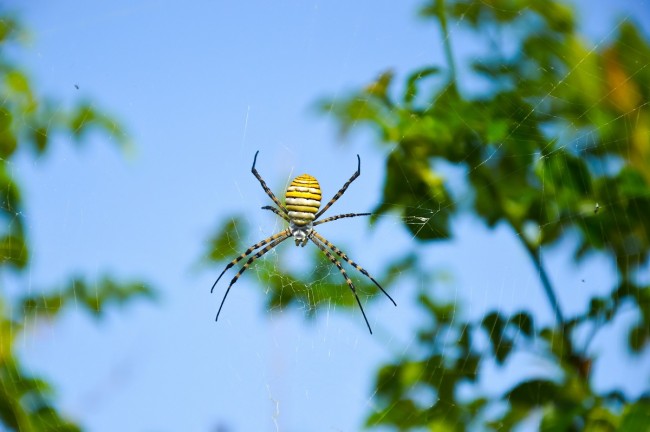The Big Role of Electric Fields in Spiders’ Flying Process Revealed

It is well known that spiders can float in the air in search of a new habitat. They have been observed at the altitude of 4 km above the ground, traveling to far-away places. A recent research provides more insight into this, showing that spiders can balloon without any movement of the air, with the help of the electric fields.
Spiders do not need wind to fly
According to the recent study, published by scientists from the University of Bristol, spiders are able to use the atmospheric potential gradient (APG) in order to balloon through the air. APG, an electric circuit between the ionosphere and Earth, can be charged and maintained in the atmosphere by thunderstorms.
This theory was first formulated in 2013 by a different group of researchers who believed that spiders can take advantage of the electric fields, which at least partially contribute to arachnids’ ballooning.
In the new study, the scientists from Bristol conducted their experiment using the spiders belonging to the genius Erigone as subjects, placing them in an environment completely free of any air movement and atmospheric electricity. Once they turned on an artificial electric field, they noticed that spiders started ballooning. However, the moment the electric field was switched off, spiders were instantly gliding down.
Further studies will be needed
This experiment seems to confirm that spiders can use electric fields to float in the air, but we do not know yet if the electricity is a necessary component in this process.
According to the scientists, arachnids can sense the APG using trichobothria, which are the sensory hairs that react to the electric field.
We have learned a lot thanks to this study, although it looks like an additional research will be needed to find out whether the spiders can float without the electric fields or not.
0 comments